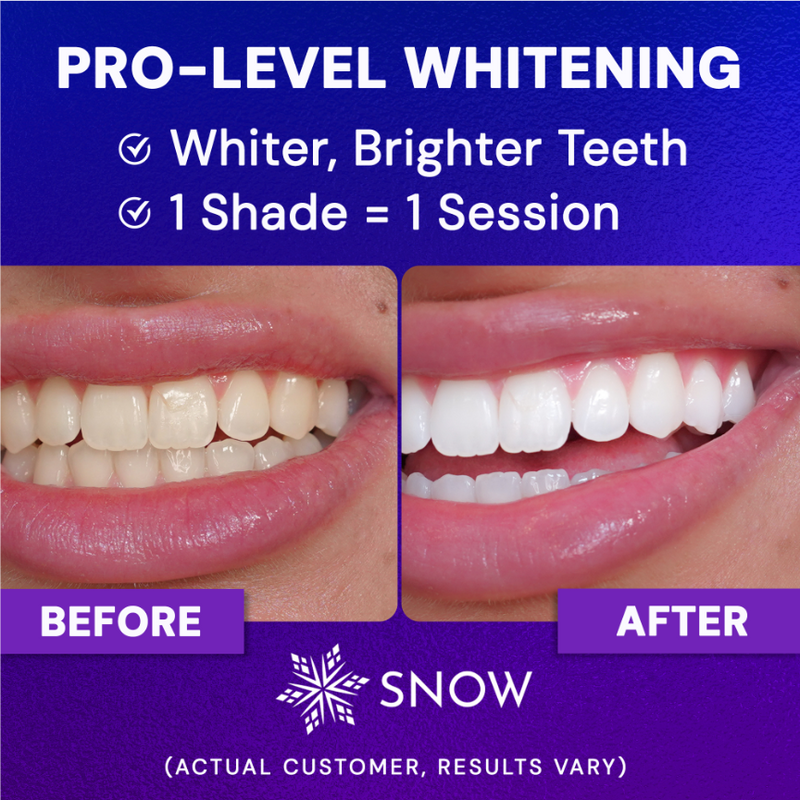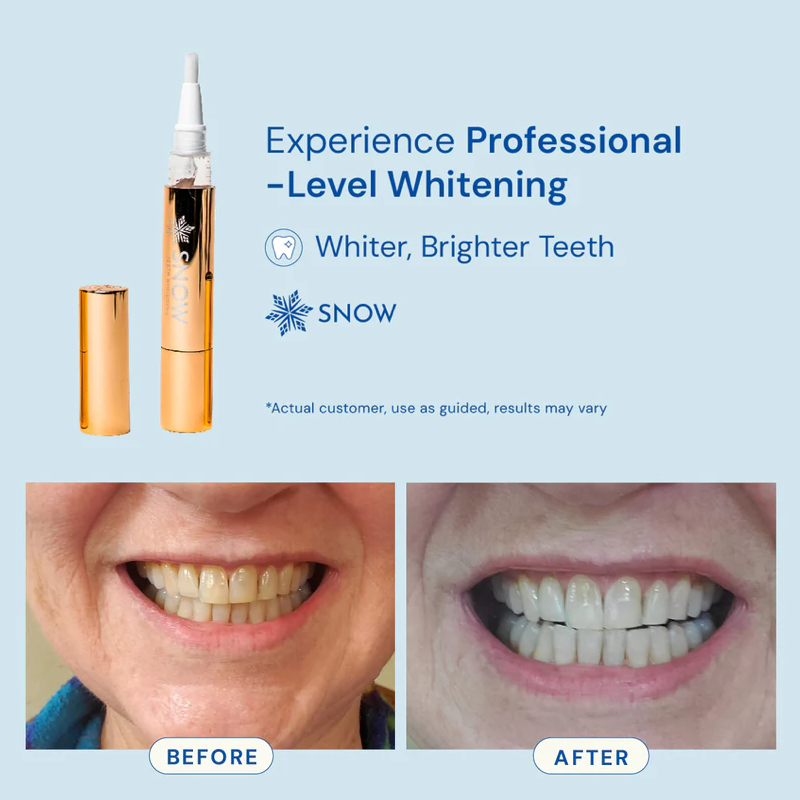Age, tooth grinding, trauma, and other issues can all lead to a broken or cracked tooth. You may not notice any signs of a cracked tooth. You may also experience discomfort, sensitivity, and swelling. Depending on the location and severity of the cracked tooth, your dentist has many treatment options.
WHAT ARE THE DIFFERENT KINDS OF CRACKED TEETH?
Understanding and identifying the five categories of tooth damage might help you fix your cracked teeth. The vertical arrangement of these fractures, from top to bottom, represents the overall prognosis for a specific crack. For instance, craze lines have a favorable prognosis, but vertical root fractures have a dismal prognosis.
CRACKED TOOTH
A cracked tooth occurs when a fracture extends from the tooth's biting surface down to the root, and it can sometimes go below the gum line and into the root. Often, a cracked tooth hurts but does not break apart. However, the delicate, interior tissue of the tooth is frequently affected.
CRAZE LINES
These are microscopic fissures that solely harm only the outer enamel of the affected tooth. They are found in all adult teeth and are painless. Craze lines do not require treatment.
FRACTURED CUSP
The cusp is the pointy component of the tooth's biting surface. The tooth cracks if a cusp is injured. When you bite, you will normally feel acute pain in that tooth.
VERTICAL ROOT FRACTURE OR SPLIT TOOTH
A vertical root fracture is frequently caused by an untreated cracked tooth, and you wind up with a split tooth broken into two pieces. A vertical root fracture is a crack that begins in the root, and the tooth crack extends upward to the biting surface.
HOW CAN DENTISTS DETERMINE IF YOU HAVE A CRACKED TOOTH?
Your dentist will first inquire about your symptoms and what caused the suspected broken tooth. They will mainly ask about any trauma or damage you have suffered.
You'll need to see a dentist to examine your cracked teeth comprehensively. They will inquire about your dental history and whether you grind your teeth, chew on ice, or eat hard foods.
Following that, your dentist will look for cracked tooth symptoms such as:
- Examine your tooth to determine whether it has been broken or knocked out (avulsed tooth)
- Request that you bite down on a stick to check whether you experience any biting pressure discomfort
- Examine your teeth for cracks
- Vertical fractures may irritate your gums; they will check for irritation
- To highlight the fracture, your dentist will shine a light through your tooth (transillumination)
- Apply a coloring dye to your teeth to help identify the fracture
- Take an X-ray of your teeth to check for larger fractures and other problems, such as bone loss. Imaging may involve a cone beam CT scan, which might reveal bone loss suggestive of a fracture
- Use specific instruments to locate the cracked tooth (periodontal probing) by observing whether the tools become engaged in the crack.
IS IT POSSIBLE TO CURE A CRACKED TOOTH AT HOME?
Your dentist may refer you to an endodontist to treat a broken tooth (a dental specialist who focuses on dental pulp and root issues). Before you visit your dentist, try the following home remedies to ease symptoms:
- To reduce swelling: use an ice pack on the outside of your mouth.
- To clean your teeth: rinse your mouth with salt water.
-
To relieve pain and swelling: take nonsteroidal anti-inflammatory medicines.
HOW TO CARE FOR A CRACKED TOOTH
A cracked tooth can be painful or unpleasant, placing you at risk for significant oral health concerns. As a result, you should get therapy as soon as possible to avoid further damage.
VENEERS
When it comes to aesthetic issues like craze lines, porcelain veneers are frequently the best solution.
Veneers are cemented to the front of your fractured teeth, concealing noticeable fissures and restoring their natural appearance. Veneers are long-lasting and will offer you a gorgeous smile for years to come if properly cared for.
DENTAL CROWNS
A crown is one of the most frequent restorative dental procedures for cracked teeth. This sturdy, long-lasting cap is adhered to your injured tooth to restore its function and safeguard it from further harm.
A dentist will take impressions or digital scans of your teeth to ensure that your personalized crown is the proper form and size to replace your original tooth. Dental crowns are a suitable option for cracked tooth treatment or a fractured cusp.
ROOT CANAL TREATMENT
You will most likely suffer sensitivity, swelling, or tooth pain if a break reaches the pulp of your tooth. The injury can be repaired by a root canal.
A root canal treatment removes deterioration and avoids infection in the affected root. Following the procedure, a dental crown will be placed to safeguard your cracked tooth and prevent the fracture from growing further.
IMPLANTABLE DENTAL DEVICE
Extensive damage may necessitate extraction of the damaged molar. If this is the situation for you, a high-quality dental implant can replace it. This is a long-term therapy that restores your smile's appearance and functionality.
A split root or a vertical root fracture frequently necessitates tooth extraction. Tooth loss affects both your general health and the quality of your life. Thus it's critical to replace the complete tooth if your tooth cracks into a vertical root fracture.
A dental implant looks and feels like a natural tooth, allowing you to eat, chew, and speak normally.
WILL MY CRACKED TOOTH ENTIRELY HEAL AFTER TREATMENT?
A cracked tooth, unlike a broken bone, can never heal fully, and a crack may worsen after treatment, and you may still lose the tooth. Nevertheless, you must get treatment, since most cracked teeth can function regularly for years following therapy. Your dental experts will be able to tell you more about your specific issue and propose a solution.
CAN I AVOID A TOOTH FRACTURE?
You can’t avoid every case of tooth breakage. However, you can lower your chance of a fractured tooth by:
- Avoiding chewing hard items or ice
- Maintain proper oral and dental hygiene
- If you play sports or grind your teeth at night, use a mouth guard made by your dentist
- Regularly see your dentist
WHAT WILL THE COST OF MY THERAPY BE?
The cost will vary based on the type of therapy you require. If there are difficulties and you require more treatment, there may be additional fees. Before you begin treatment, get a treatment plan and a written estimate from your dental staff.
CONCLUSION
Accidents and a variety of other factors can cause a tooth to break. It might impact your look and make you feel embarrassed if it's noticeable. You may experience pain, sensitivity, swelling, or evidence of infection if you break a molar, but you might also shatter a tooth without experiencing any symptoms. If you suspect a broken tooth, see your dentist right away. Treatments can save your tooth, restore your aesthetics, and prevent future dental issues.
FAQS
HOW SERIOUS IS A CRACKED MOLAR?
If not addressed, cracked teeth can cause nerve death and lead to an abscess. The tooth may require root canal therapy or extraction. In extreme circumstances, the tooth may fracture in two. If this occurs, your dentist will be unable to salvage the tooth, and it will have to be extracted.
IS IT NORMAL FOR A MOLAR TO CRACK?
Cracks in your molars are prevalent since they are on the back and side of your mouth and absorb most of the force when you chew. Eating hard items (such as hard candies) and chewing on ice might result in a fractured tooth that requires treatment. Teeth grinding can also be harmful.
WHAT DO THEY DO FOR A CRACKED MOLAR?
Your dentist could advise getting a crown, a root canal, or having the tooth removed. A filler substance can fix the crack if your dentist determines that it is preferable. To remove the damaged tissue, your dentist may advise a root canal if the interior of your tooth is compromised. If there is an infection, you will likely need antibiotics before a repair can be made.
CAN A CRACKED MOLAR BE SAVED?
If the break has grown into the pulp, the tooth can be treated with a root canal and a crown to prevent it from spreading further. If the break goes past the gum line, however, it is no longer curable, and the tooth cannot be salvaged and must be pulled.
CAN YOU LIVE WITH A FRACTURED TOOTH?
Yes, you probably can get by with cracked teeth. There may be no discomfort, and it might not even be noticeable when you smile, especially if they are tiny cracks on a molar. Still, there are several risks associated with having a cracked tooth that might have a long-term negative impact on your oral health.
DO YOU HAVE TO GET A BROKEN MOLAR EXTRACTED?
A filling could be utilized to repair the issue if the damaged tooth is minor and does not extend to the tooth's root. However, an extraction will probably be required to stop infection if the break is significant or extends to the tooth's root.
WHAT OCCURS IF A MOLAR IS EXTRACTED WITHOUT BEING REPLACED?
You should consider replacing the lost tooth or teeth after having a tooth extracted. The bones in your mouth may deteriorate and lose density if the teeth are not replaced. Additionally, other teeth may move, which might make eating challenging. Thankfully, you have a variety of tooth replacement choices.





































































